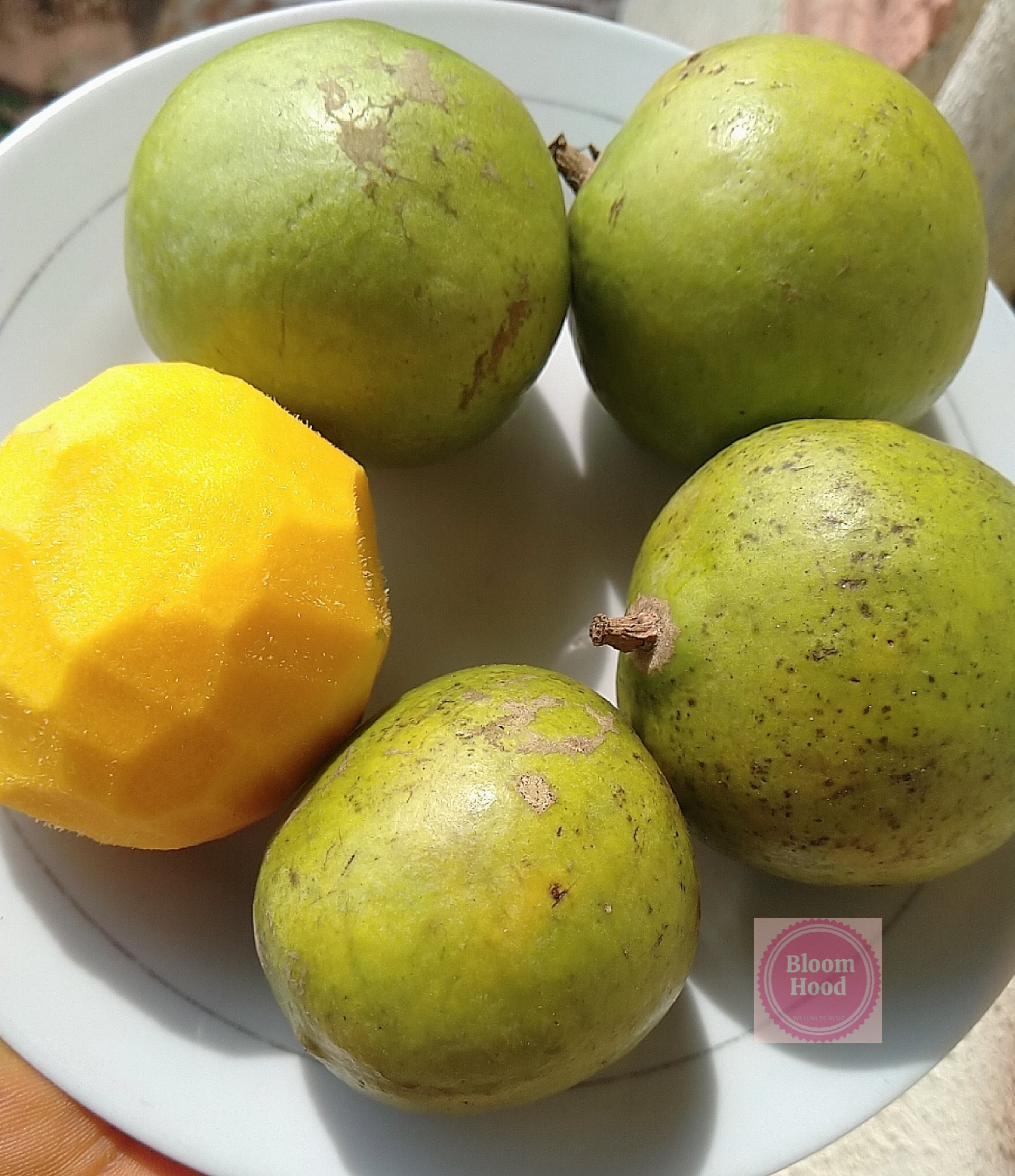Bush mango or African bush mango locally known as Ugiri, Apon, Dika, African mango or wild mango is popular for its seeds (ogbono) rather than the fruit.
Its botanical name is Irvingia which consist of two varieties known as Irvingia Gabonensis and Irvingia Wombolu.
In this article, we will be focusing on its nutritional values, health benefits and uses.

Nutritional values of Bush Mango
Bush mango contains much more nutrients than you can imagine.
Nutritional value of the seed at 100gram serving
| Nutrients | Quantity |
| Carbohydrates | 15g |
| Protein | 8.5g |
| Calories | 697 |
| Water (moisture) | 4g |
| Calcium | 120mg |
| Iron | 2.4mg |
| Fat | 67g |
| Fatty acid composition | |
| Myristic acid | 33-70% |
| Stearic acid | 1% |
| Lauric acid | 20-59% |
| Palmitic acid | 2% |
| Oleic acid | 1-11% |
Nutritional value of the Irvingia Gabonensis fruit pulp at 100gram serving
| Nutrients | Quantity |
| Carbohydrates | 15.7g |
| Protein | 0.9g |
| Calories | 61 |
| Water (moisture) | 81g |
| Phosphorus | 40mg |
| Calcium | 20mg |
| Vitamin C | 7mg |
| Iron | 2mg |
It also contains Fibre, Antioxidants, and Vitamin B. Also, it consists of minerals like Sodium, Potassium, Zinc, and Magnesium.
Health Benefits of African Bush Mango
1. May help prevent cell damage
Bush mango contains some antioxidant properties. That means it can help prevent the damaging effects to the body organs caused by oxidation.
Therefore, it can help boost liver and kidney function, and improve general wellbeing.
The leaf and stem extract contains some antioxidants and has proven effective in many research, even in cancer treatment.
2. May help in weight loss
Bush mango has rich fibre content. That means it can help reduce your appetite resulting in less food intake.
Also, the African Bush Mango is sold in food stores as supplements for weight loss management and other benefits it offers.
3. Reduce sugar levels
It has minimal sugar content. Therefore, it can help control insulin levels in diabetic patients. For non-diabetic patients, it can help reduce the risk as compared to the intake of foods rich in sugar.
4. Improve bowels movement
The fibre content helps to ease constipation. That is not all. Bush mango plays a great role in the digestive tract.
It alleviates diarrhoea and helps reduce stomach acidity, which makes it good for someone with an ulcer.
5. Boost heart health
African Bush mango is believed to help reduce bad cholesterol (LDL). This makes it good for losing weight too.
In addition, it contains iron which helps improve circulation to the heart and other parts of the body.
6. Acts as painkiller
Bush mango contains some antimicrobial properties. Owing to that, it can help reduce microbial activities on a wound (leaf extract).
Also, it is effective in reducing pain, treating sores and improving blood clot to stop bleeding.
It can help inactive hernia growth; reduce fever such as yellow fever, jaundice and treat ear infections.
For maximum benefits, the leaves, fruits, barks, roots and seeds are used as a herbal extract. It can be made into decoction, pills, powder, and so on, depending on the mode of usage necessary.
However, there is a need for more research to prove its efficacy.
Uses of African Bush mango
- Every part of the plant is beneficial; from the roots to the bark, stem, seeds, leaves and fruits. They are used in different proportions to make traditional medicine.
However for medicinal purposes, Irvingia Wombolu is preferred over Irvingia Gabonensis as it showcase rich medicinal properties.
- The seed popularly known as ogbono is grounded and used as a soup thickener or serve as an active soup ingredient in ogbono soup.
Again, the seeds can be roasted and eaten raw, processed into supplements or even used to make dika bread.
- The seeds can be further processed into butter or pressed to extract the oil. The oil is used either in cooking, cosmetics or soaps.
Also, the resulting cake after pressing the oil out can serve as feed for livestock such as cattle.
- The fruit is edible and safe to it. However, the fruit of Irvingia Gabonensis is sweet; whereas that of Irvingia Wombolu is bitter.
More so, you can use it to make jam, process it into fruit juice or even wine. The fruit pulp has been used for colouration, by converting it into dyes for clothes.
- The wood is a great source of firewood. It, being a hardwood makes it good for heavy construction.
How does Bush mango taste?
African Bush mango (Irvingia Gabonensis) has a rich and strong flavour. No doubt.
However, not everyone love the taste. It is somewhat astringent and may leave a lingering taste in the mouth.
Which not everyone fancy.
For some persons they consider the fruit just as sweet as a mango.
Also, do not be surprised that the texture of the fruit may draw (slime) even while eating it.
Conclusion
Africa bush mango Irvingia Gabonensis offers more than just sweetness. So, when next you are lucky to see it, do not hesitate to have a bite.
On the other hand, the other variety, known as Irvingia Wombolu may not possess the sweetness of Irvingia Gabonensis but it gives you a better ogbono seed.


1 Comments Add yours